Distemper in cats
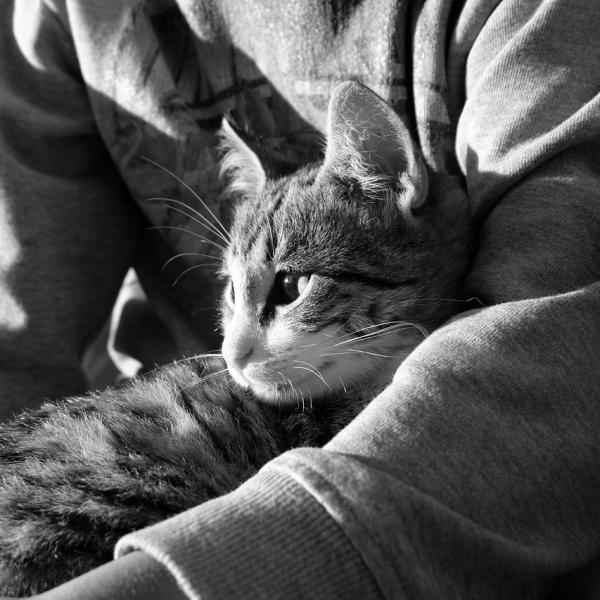
The number of cats with distemper it has been reduced considerably since there are specific vaccines to prevent this disease, in addition to having the luck that cats do not need any walk. Even so and if we have any oversight we should know that it is a very contagious disease and that endangers the life of your cat, read on to learn more about the distemper in cats.
What is distemper
It is also known as feline panleucopenia and it is a very contagious viral disease present in cats. Although the name is similar to the canine distemper virus has nothing to do, it is completely different viruses.
It is in the environment and all cats have been exposed at some time in their life. Vaccination is what determines whether it develops or not. This type of virus attacks and kills cells that divide very quickly (for example those of the intestine or those of the bone marrow) without affecting the human being in any way.
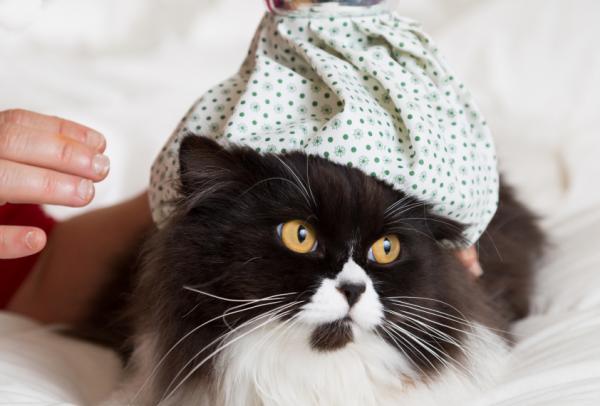
How distemper is spread
Distemper is eliminated through urine, feces or nasal secretions, for that reason cats that enter contact with blood or some type of discharge They will be at risk of being infected. In the colonies of cats this phenomenon increases since even fleas can be carriers of distemper.
Although the cat eliminates the distemper virus in a few 24 – 48 hours, remains dormant in the environment until periods of one year, so letting our cat roam the garden can be a bad idea. Pregnant pregnant cats could give birth to babies with serious problems in the cerebellum. They can also become infected when they come into contact with street cats.
It can also endure in cages, feeders, shoes and clothes. If we have several cats we must isolate them all and go immediately to the vet.

What are the symptoms of distemper
There are several symptoms that can indicate that our cat has distemper, although it is also true that we can be confused with infections or poisonings because of its direct attack on the intestines.
Remember that the later you detect it, the less likely your cat will be.
Be attentive to:
- Apathy or sadness
- Runny nose
- Major or bloody diarrhea
- Vomiting
- Dehydration
- Fever
- Lack of appetite
One or several of these symptoms by themselves are already serious, for that reason you should take your pet to the veterinarian as soon as possible. In the most advanced phase of the virus our cat will show seizures and even attacks itself same, biting its tail or different parts of the body. These two symptoms manifest themselves in the most critical part of the disease.
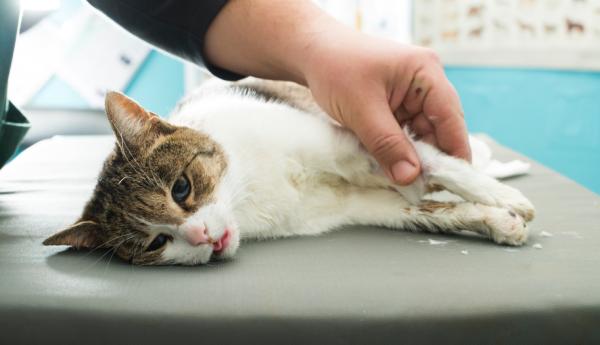
Treatment of distemper in cats
It is usually more common in kittens under 5 months, those who have not yet been vaccinated and who may be in contact with adults.
There is no proper treatment Since no medication eliminates the virus, the medication is focused on reducing the symptoms it suffers and helping it to slowly expel the distemper virus. After the 5 days, their chances of survival increase considerably.
The patient is usually hospitalized because there is a very high risk of dying. The cat is usually hydrated with serums and antibiotics are given for infections. The love and constant love of its owners increase the chances that our cat will survive, stimulation always helps.
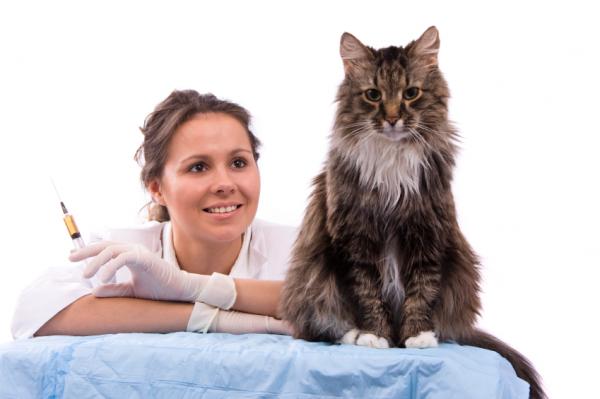
Prevention of distemper
Prevention is fundamental to prevent our cat suffering from the distemper virus. The baby kittens will receive from the breast milk a kind of immunity that will last at most 12 weeks. Vaccines exist that offer protection against this virus, for that reason, if our cat is up to date with his visits and veterinary care we should not worry about him suffering this problem.
Although our cat lives only in a flat or house isolated from other cats and the outside environment, it is important to remember that you can still suffer it by being infected by the remains of the virus that live in shoes or clothes.
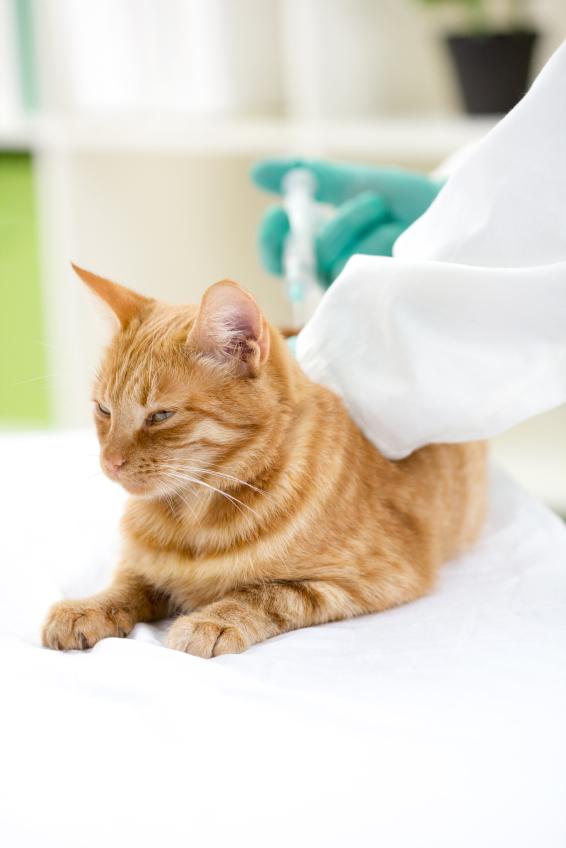
Caring for a cat with distemper
Once the veterinarian allows us to take our cat infected by distemper home we will follow the advice and indications that we give, we must provide a totally disinfected and free of drafts.
- We will provide you clean water in abundance, forcing him to drink with a syringe without a tip if necessary.
- As well it is necessary to nurture correctly. It is preferable to offer premium food that is usually more nutritious and appealing to them. The veterinarian can recommend vitamins and supplements.
- Affection and hygiene are fundamental and must be daily, in this way the cat will gradually expel the disease.
Very important: We will isolate all the other cats from the house.
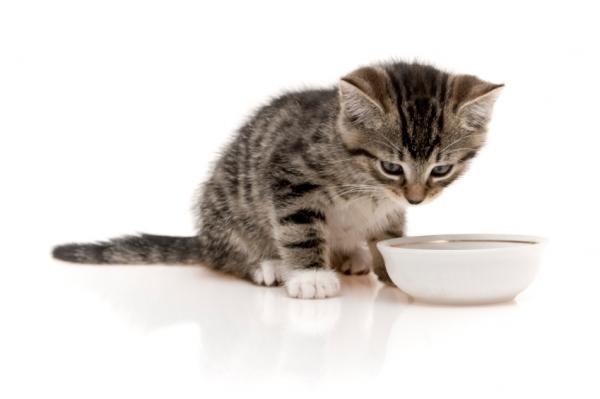
This article is merely informative, in .com we do not have the faculty to prescribe veterinary treatments or make any kind of diagnosis. We invite you to take your pet to the veterinarian in case of any type of condition or discomfort.
If you want to read more articles similar to Distemper in cats, we recommend that you enter in our section of viral diseases.


